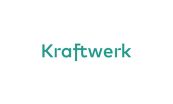
Februar 2016
5 Tips On How To Be A Tech Startup For Good
“Wake up world, wake up and stop sleeping. Open your eyes!”
As I write, this song plays in the background, and I begin to wonder how such a rebellious song can end up as a top 40 radio hit. What does this say about our current time, and how does the modern social entrepreneur feed off the popularity of this timeless sentiment?
Scott Kennedy is the CEO and co-founder of OpenLabel, a tech startup that hopes to replace static packaging with a socially conscious, data-rich app. He sat down with me to share his insights on what he’s learned while building the next Wikipedia. By simply waving their mobile phone over any product barcode, OpenLabel lets the public access and edit a “digital label”. This label can include everything you might want to know about a product; how it was made, how healthy or sustainable it is, the politics and labour practices of the manufacturer, and even whether your friends recommend it. Best of all, the app and website are a free and open resource for all consumers and nonprofits.
In world where consumers are increasingly demanding transparency – especially in the food and consumer goods sector – OpenLabel empowers consumers to make more responsible, more considerate decisions on which products to buy.
Boots on the ground
Look at your average startup entrepreneur and you’ll see passion, determination, conviction, and lots of blue ocean strategies. But these oceans can turn red in the blink of an eye if competitors jump on the same innovative solution. We tend to see a different type of motivation in social entrepreneurs, who reach beyond traditional financial success. They are motivated by ideas, and a vision of how the world should be. Kennedy commutes regularly between Silicon Valley and Amsterdam, tirelessly hopping from one opportunity to the next, to build his startup and evangelize others to help make commerce more transparent.
Kennedy perseveres: he architects and builds, releases, fails, and tries again. Right out of the gates, Kennedy ditched the more practical idea of starting his database on the web, and began instead to pitch and build his brand around the growing mobile space. Kennedy has more experience than the average entrepreneur: he knows how to scale a startup, and has studied the business models of giants like Amazon, Facebook, and Yelp. He has seen with his past companies Bitstar and Axcelis how a startup can take off rapidly, and fail rapidly. He’s a tech sheep in a marketing wolf’s clothing, who has experienced firsthand the differences between the Dutch and American startup culture.
The average startup entrepreneur struggles under less than ideal situations, like not having a huge team of top talent, or a big bag of money. So how can a “Tech Startup For Good” start small and still achieve a massive, innovative goal?
Kennedy shares his top 5 lessons on how to break apart an idea, and take little steps towards a successful, giant impact.
Tip 1: Learn from what’s already out there
As you dive headlong into R&D, do a study on comparative models out there and find similarities. Don’t reinvent the wheel. In the case of OpenLabel, the underlying models of Wikipedia, Change.org and Yelp helped Kennedy inform and shape his business strategy. For instance, Wikipedia opened to the public only after they had already amassed a critical amount of data. Taking that cue, OpenLabel started scraping and harvesting as much product data as possible from the beginning, and now boasts over 20 million products in its database. He also employed “growth hacks” by using existing open-source data and code to build the prototypes, and leveraged the connections of others to recruit new potential partners.
Along the same lines, Change.org was a learning case for how community can work for you, and how powerful the crowd can be. It showed that consumers want to use their voice; they want and demand more responsible and sustainable goods; and they like to have an influence on the way brands produce goods. Change.org shows that consumers want to take part in the way organisations do business and will use web tools to shape public opinion. Building on the evidence of these easy-to-opt-in-revolutions and hunger for change, OpenLabel looks at how we can drive change via our decision-making buying power.
Finally, Yelp provided Kennedy with a template for how to start by focusing on providing value to the very first customer by limiting the scope of the project. Yelp is also gave him proof that crowdsourced reviews could be the basis for a billion-dollar public company.
#Don’t go crazy over research and R&D, but instead look at similar organizations, including what is around your – often not far away – fellows.
Tip 2: Communicate your product well
Let’s face it; everyone needs money. So once you dedicate yourself to saving the world, investors come into play very quickly. To convince and rally up your stakeholders, you need to be clear about the value you are offering.
In the case of OpenLabel, Kennedy knows that a growing group of smart companies recognize that product transparency, and access to open data at our fingertips, is inevitable. He needed to find a quick and clear message to catch the attention of these companies, and bring in more users and supporters. By A/B testing multiple possibilities, OpenLabel eventually came up with a few short phrases to describe their service, which they then used for VC pitches, conference presentations, and marketing materials. Some examples:
“You deserve to know what you’re buying.”
“Shop Smarter”
“Because Product Labels Suck”
“Help us build a more honest label”
“Now the world can instantly share useful product information, and make smarter choices for our health, our society, and our planet.”
#Find a quick way to communicate the why and how of your solution
Tip 3: Pay attention to your users
‘OpenLabel hopes to make you a smarter, more conscious consumer.’, according to one story in FastCompany. But what does it take to serve your actual users? Kennedy says that this is the hardest thing to do – to offer your users a service that they will utilize continually. In order to do this and be useful, OpenLabel needs enough data.
To this end, the strategy as learned from Wikipedia, is to collect as much information on products as possible first. The next step is to get better and more detailed data, and lastly, deliver it in a frictionless and easy manner. One option for lowering the threshold would be with use of RFID scanning, for instance.
Another key thing that Kennedy has learned about his users was that while some people may not really have a passion about products, they often do feel strongly certain issues. So now OpenLabel tries to connect products to broader issues, such as air pollution, equal worker rights, and ending hunger – issues people can really connect with.
#Get to know your users.
Tip 4: Prove your service works
“I’m not motivated by money” Kennedy said, knowing that money will follow if his solution gains sufficient traction. I’m motivated by the impact the platform will have if I can make it work.”
A huge challenge for startups is getting investment,. and the best way to do that is with a good proof-of-concept. “Look at any business model used by former startups that are successful now, and you see that many figure out money later. In the early stage, it’s about exciting users and proving they love what you do,” Kennedy says. “While others fought the digital music download” he recalled, “Apple pioneered the .99 cent download, and people voted with their wallets.”
#The challenge of business is still about getting customers.
Tip 5: Define your version of “success” in advance
Ask yourself what it means to you to be successful. Is it reaching a certain number of downloads or customers? Reaching a certain level of revenue as a company? Landing on the front page of the New York Times? Maybe it’s about creating a beautiful product that works well – and trusting that the public will catch on.
In Kennedy’s case, he imagined the perfect scenarios, where “useful, customized, trustworthy product information was floating right next to the product, helping you make smarter choices. OpenLabel would be a Wikipedia-level, free resource for all consumers, maintained by a community of conscious consumers and nonprofit organizations.
#What is your *real* goal? Will it change in the future?
Bonus tip: Take the time to educate your investors
With OpenLabel already launched in the USA, the Netherlands is the next market to enter. And though Amsterdam has been an ongoing homebase for its culture and lifestyle, Kennedy still must travel back-and-forth between the Silicon Canals and the Silicon Valleys.
Once you pass the startup acceleration phase you enter the investment game. At this point a fledgling company doesn’t need programmers or advisors as much as it needs to get investment-ready. And despite being known for their freedoms, the Dutch have a reputation for being somewhat conservative, a fact reflected in the startup investor scene.
Kennedy confirms, “At this point, I don’t need a course on how to build a company. I’d rather see more seminars that say “If you have some extra income, and you’d like to do something extraordinary, come learn how a little risk can be a whole lot more fun than low-volatility bonds.”
Apparently many Dutch have yet to acquire a taste for the sort of chaos and drama that led to the birth of today’s most innovative companies. “Would you rather tell your friends and relatives about your diversified mutual funds, or about how you are helping preserve the elephant population, or reduce the carbon footprint of cars, or predict natural disasters with smart sensors? Kennedy asks. “It’s exciting, and yes, it’s really fun.”
Kennedy continues, “For startups in the development phase, the Netherlands can be challenging for getting that first or second round of investment, even when you have all the reasonable components in place.” When he was unable to start the company in Amsterdam, OpenLabel raised $80,000 from angels in California. And subsequent rounds of investment have all come from Silicon Valley, despite Kennedy’s attempts. But we are all excited to see that slowly changing, as recent efforts have been made over the last few years, and a maturing Impact Investing scene in the Netherlands is growing. To that end, keep a close eye on Hub programming and to join us in an upcoming full day event dedicated to impact-driven investors and entrepreneurs.
Scott Kennedy is a member of Impact Hub and currently based in Amsterdam,where he finds an enthusiastic community of fellow peers and impact investors. He is also a frequent speaker, advisor, and is involved in several initiatives aimed at growing the social entrepreneurial scene forward.
Impact Hub congratulates Kennedy and OpenLabel on the recent nomination for the International Sustania 100 Award, and his acceptance into the prestigious Tumml Accelerator.
Newsletter abonnieren
Unser Newsletter erscheint alle 3-4 Wochen und stellt sicher, dass ihr nichts aus der Community verpasst.


